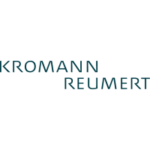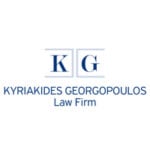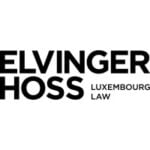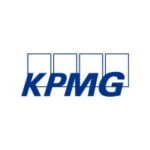-
Climate – the law governing operations that emit Greenhouse Gases (e.g. carbon trading) is addressed by Environment and Climate Change international guides, in respect of ESG: a. Is there any statutory duty to implement net zero business strategies; b. Is the use of carbon offsets to meet net zero or carbon neutral commitments regulated; c. Have there been any test cases brought against companies for undeliverable net zero strategies; d. Have there been any test cases brought against companies for their proportionate contribution to global levels of greenhouse gases (GHGs)?
- There is no general legal obligation in Germany to implement net-zero business strategies. However, the European Corporate Sustainability Due Diligence Directive (CSDDD) requires certain companies to adopt and implement a climate mitigation plan. This plan must align their business strategy with the transition to a sustainable economy and the 1.5°C target set by the Paris Agreement, including interim targets, decarbonization measures, and investment details (Art. 22 EU Directive 2024/1760). Companies covered by existing EU reporting obligations are considered compliant with this requirement. The CSDDD has been in force since July 2024 and should be transposed into national law by July 2026. However, on February 26, 2025, the European Commission published a proposal for an Omnibus Simplification package. The regulation is intended to bundle the obligations of the Corporate Sustainability Reporting Directive (CSRD), the CSDDD, the Taxonomy Regulation and the Sustainable Finance Disclosure Regulation (SFDR). The aim of the Omnibus Simplification package is to reduce the bureaucratic burden on companies, especially SMEs. The European Parliament and the European Council will discuss the proposed regulation. Amendments are still possible during this process. The European Commission is planning to weaken the CSDDD to the effect that companies will have to draw up climate plans with implementation measures, but their actual implementation will no longer be mandatory.
- In Germany and Europe, the use of carbon offsets to meet net zero or carbon neutral commitments is currently primarily regulated by the EU Emissions Trading System (EU ETS) and the Effort Sharing Regulation (ESR). Under the EU ETS, companies in sectors such as power generation and heavy industry must hold permits, called European Union Allowances (EUAs), for each ton of CO2 they emit. Companies can use carbon offsets, called Certified Emission Reductions (CERs), to meet part of their emissions reduction targets. Similarly, under the ESR, each EU member state has a national target for reducing emissions in sectors such as transport, buildings, and agriculture.
- Additionally, the EU is in the process of implementing a new regulation on Green Claims. The Green Claims Directive (EU) 2024/825 will set out criteria for making environmental claims on products, including requirements for transparency and accuracy. This will address greenwashing. The final adoption should take place in 2025. The EU has also established the Sustainable Finance Disclosure Regulation (SFDR), which requires financial market participants to disclose information on the sustainability of their investments. This regulation aims to prevent greenwashing in the financial sector by ensuring that investors have access to reliable and comparable information on the environmental and social impacts of investment products. The SFDR is facing a major reform. According to the Commission’s proposal, among other things, a categorization scheme is to be introduced that reflects the different sustainability strategies. Furthermore, the European Commission has published guidelines on how to make accurate and substantiated environmental claims in line with the Green Claims Regulation.
- In recent years, environmental NGOs in Germany have sued German car manufacturers including Mercedes, VW, and BMW to ban them from selling vehicles with internal combustion engines after 2030 in an attempt to get the companies to pursue a net-zero strategy. The lawsuit is based on Germany’s limited CO2 budget and thus of individual German companies. In all three cases, the lawsuit was dismissed in the first and second instance; in the case against Mercedes the plaintiffs have appealed to the Federal Court of Justice.
- The number of climate lawsuits is currently increasing rapidly and will occupy the German courts more and more, partly because they involve complex new legal issues that cannot be easily dealt with using the current legal system and its interpretation.
- There are currently no known test cases (Musterklagen), but individual claims. For example, a Peruvian farmer has sued the energy utility company RWE AG because he blames RWE for climate change by emitting an estimated 0.47% of worldwide greenhouse gases over the last hundred years. Due to climate change, the farmer claims, glaciers are melting and threatening his property in a valley below a glacier in the Andes. The plaintiff seeks, among other things, a reduction in greenhouse gases by RWE in Germany and payment for appropriate protective measures against the threat of flooding. The first instance court rejected the claim, among other reasons, because of the lack of causality between the share of greenhouse gas emissions in Germany and the concrete damage in Peru. The case is currently on appeal. A judgement is expected this year.
-
Biodiversity – are new projects required to demonstrate biodiversity net gain to receive development consent?
In Germany, there are currently no legal regulations requiring a net gain of biodiversity as a condition to obtain development permits. However, the EU Commission’s Environmental Services has published a guidance on a “No Net Loss/Net Gain” of biodiversity as part of the new EU Biodiversity Strategy. The implementation and application of the guideline is voluntary so far and has rather the character of a “best practice” catalogue. In Germany, there are still certain legally binding regulations in environmental laws such as Section 15 BNatSchG, including regulations on compensation and avoidance of interventions in the environment. The German Environmental Impact Assessment Act requires certain industrial projects to undergo an assessment of their impact on biodiversity in order to obtain planning permission. This is the case for mines, for example.
-
Water – are companies required to report on water usage?
Yes, companies in Germany are required to report on water usage under certain circumstances.
The primary law regulating water usage in Germany is the Federal Water Act (WHG), which aims to protect and conserve water resources. The law requires companies to obtain permits for certain activities that may affect water resources, such as discharging wastewater into a river or groundwater, or extracting water for industrial purposes. Companies that hold permits for water-related activities are typically required to report on their water usage and other relevant environmental data, such as wastewater quality and discharge rates. The specific reporting requirements depend on the type of permit and the nature of the activity, and may be set by federal, state, or local authorities. In addition to regulatory reporting requirements, many companies in Germany also report voluntarily on their water usage and management practices, as part of their sustainability reporting or other environmental disclosure initiatives. These reports can provide additional information on a company’s water-related impacts and management strategies, beyond the legal requirements. In future, sustainability reporting could also include mandatory disclosures on water use. It remains to be seen how the Corporate Sustainability Reporting Directive (CSRD) will be transposed into national law.
-
Forever chemicals – have there been any test cases brought against companies for product liability or pollution of the environment related to forever chemicals such as Perfluoroalkyl and Polyfluoroalkyl Substances (PFAS)?
There have not been any test cases specifically related to product liability or pollution of the environment caused by Perfluoroalkyl and Polyfluoroalkyl Substances in Germany so far. However, PFAS have been a topic of increasing concern in Germany due to their persistence, bioaccumulation, and potential health and environmental impacts. In recent years, German authorities have taken various measures to address PFAS contamination and exposure. For example, the German Environment Agency (UBA) has published a report recommending stricter regulations on PFAS, including a ban on non-essential uses of PFAS and tighter controls on industrial releases of the chemicals. In addition, the German Federal Ministry of the Environment (BMU) has launched a national action plan to reduce PFAS contamination, which includes measures such as monitoring and testing of drinking water, soil, and food, as well as research on alternative chemicals and technologies.
There is also a lawsuit against the State of Germany by a private individual who claims that his property has been poisoned by PFAS. If successful, this could lead to further lawsuits against companies linked to these chemicals.
In addition, the European Commission has taken decisive action to address the risks posed by PFAS and published a new Chemicals Strategy for Sustainability, which includes a commitment to reduce the use of PFAS and to assess the need for further regulatory action to address their risks. According to the EU’s REACH regulation, which governs the registration, evaluation, authorization, and restriction of chemicals, PFAS substances have been identified as substances of very high concern (SVHCs). As a result, companies that manufacture, import, or use these substances in the EU are subject to regulatory requirements, such as notification and authorization obligations, and may face restrictions or bans on their use in certain applications.
-
Circularity – a. The law governing the waste hierarchy is addressed by the Environment international guide, in respect of ESG are any duties placed on producers, distributors or retailers of products to ensure levels of recycling and / or incorporate a proportionate amount of recycled materials in product construction? b. Are any duties placed on producers, distributors or retailers of products to handle the end-of-life of the products placed on the market?
- The primary law governing waste management in Germany is the Circular Economy Act (KrWG), which sets out the legal framework for waste prevention, recycling, and disposal. According to this law, waste management follows a hierarchical order, with the priority given to waste prevention, followed by preparation for reuse, recycling, and other forms of recovery, and finally disposal. In addition, Germany has lately implemented various extended producer responsibility (EPR) schemes, which require producers and importers of certain products to take responsibility for the proper disposal and end-of-life management of their products. These schemes typically include requirements for product design that facilitate the reuse and recycling, as well as obligations to collect and recycle products at the end of their life. Furthermore, the German Packaging Act (VerpackG) requires producers and distributors of packaged products to participate in a system of producer responsibility organizations, which are responsible for ensuring the collection and recycling of packaging waste. The Act also includes requirements for the use of recycled materials in packaging, with targets for increasing the percentage of recycled content over time. Furthermore, the new EU Battery Regulation requires manufacturer of electronic devices to take back certain amounts of batteries to recycle them and to use these recycled materials for new batteries. This shall create a cycle where no new resources are needed.
- The WEEE Directive 2012/19/EU (“Waste Electrical and Electronic Equipment” Directive) obliges producers, distributors, and retailers of electrical and electronic equipment in the EU to dispose of and recycle these products in an environmentally friendly manner. According to this directive, manufacturers must register their products with the competent national authority, in Germany the “Stiftung Elektro-Altgeräte Register (EAR)”, before placing them on the market. In addition, all electrical appliances must be marked with the crossed-out wheelie garbage can symbol to indicate the need for separate disposal. By complying with these obligations, companies contribute to the environmentally sound disposal and recycling of electrical and electronic equipment and fulfil their legal obligations under the WEEE Directive. The new Ecodesign for Sustainable Products Regulation (EU) 2024/1781 (ESPR), which came into force in July 2024 and obliges companies to improve the environmental performance of their products by setting requirements for their reparability, recyclability, and resource conservation, must also be considered. These regulations apply in particular to energy-consuming products, textiles, and other categories, and are intended to promote sustainability through long-term product design.
-
Plastics – what laws are in place to deter and punish plastic pollution (e.g. producer responsibility, plastic tax or bans on certain plastic uses)?
Germany has implemented several laws and measures to deter and punish plastic pollution, including:
- Extended Producer Responsibility (EPR) – Pursuant to the VerpackG, producers and distributors of packaged products are required to participate in a system of EPR organizations, which are responsible for ensuring the collection and recycling of packaging waste. This includes plastic packaging.
- Deposit System – Germany has a deposit system for beverage containers made of plastic, glass, and metal. This system incentivizes consumers to return their used containers for recycling and reduces the amount of plastic waste ending up in the environment.
- Plastic Bag Ban – Germany has banned the distribution of single-use plastic bags in retail stores.
- Plastic Tax – Germany introduced a tax on plastic packaging that is not made from at least 30% recycled material. This is an incentive to encourage manufacturers to use more recycled materials and reduce the amount of plastic waste. Germany pays an estimated amount of 1.4 billion EUR a year to the EU for non-recycled plastic. This will be passed on to distributors from 2026.
- Ban on Certain Single-Use Plastics – Germany has implemented a ban on certain single-use plastic items such as cotton buds, cutlery, plates, straws, and stirrers.
- Microplastic Restrictions – Germany has restricted the use of microplastics in personal care, cleaning and other consumer products.
-
Equality Diversity and Inclusion (EDI) – what legal obligations are placed on an employer to ensure equality, diversity and inclusion in the workplace?
According to the General Act on Equal Treatment (AGG), discrimination in the workplace on the grounds of race, ethnic origin, gender, religion or belief, disability, age, or sexual orientation is inadmissible. Employers are obliged to take measures to prevent discrimination and harassment and provide equal opportunities. The Act to Promote Transparency in Wage Structures (EntgTranspG) is intended to support particularly women in asserting their right to equal pay for the same work or work of equal value. An individual right to information for employees, the obligation of employers to conduct audits and the reporting obligations on equality and equal pay are statutory instruments intended to close the gender pay gap. The new EU Pay Transparency Directive, which must be implemented by EU member states by June 2026, will strengthen these rights and force employers to publish whether men and women are paid equally. There is also the Part-Time and Fixed-Term Employment Act (TzBfG). The aim of the TzBfG is not only to promote part-time work and to define the framework conditions for fixed-term employment contracts, but also to protect those employees from discrimination and disadvantages. This is achieved, for example, through an explicit prohibition of discrimination and the so-called “pro rata principle”, according to which monetary benefits for part-time employees are to be granted at least to the extent that the proportion of working time corresponds to the working time of a comparable full-time employee. If the employer has a works council (Betriebsrat) or a staff council (Personalrat) as an employee representation body, they can also take measures to promote equality, inclusion, and diversity. The works council or staff council can be supported in their work, for example, by a representative for severely disabled persons, an equal opportunity officer or an occupational health and safety officer. In addition, the Minimum Wage Act (MiLoG) is intended to ensure that all employees are entitled to at least a certain level of income by establishing a minimum wage. In this way, a fair minimum wage level is to be ensured for all employees.
According to the Equal Opportunities for Disabled Persons Act (BGG), employers must eliminate and prevent discrimination towards people with disabilities and ensure their equal participation in the workplace. In doing so, special needs must be considered. Furthermore, there are provisions in German labor law that stipulate a certain proportion of women for management, supervisory and executive bodies (inter alia: FüPoG II; AktG, GmbHG, MitbestG, SEBG). Accordingly, these bodies must be staffed with at least a certain percentage or number of women in order to promote equal treatment and diversity at the highest level.
-
Workplace welfare – the law governing health and safety at work is addressed in the Health and Safety international guide, in respect of ESG are there any legal duties on employers to treat employees fairly and with respect?
Employers are legally obliged to treat their employees fairly and with respect. These obligations are reflected in various laws and regulations that aim to protect the welfare of employees in the workplace. Some examples include:
- According to the Occupational Safety and Health Act (ArbSchG) and the Workplace Ordinance (ArbStättV) employers shall take measures to ensure the health and safety of their employees in the workplace. This includes providing a safe working environment, health and safety assessment of the workplace, measures to prevent accidents and injuries, and providing appropriate training and protective equipment.
- The Working Hours Act (ArbZG) limits the number of hours employees are permitted to work and requires employers to provide sufficient breaks and rest periods to ensure the employees well-being. It also contains rules on working at night-time, Sundays and bank holidays and an obligation to record working times that exceed the maximum limit of 8 to 10 hours per day. The employers’ obligation to fully document the working hours of their employees is based on case law of the European Court of Justice.
- The Maternity Protection Act (MuSchG) aims to protect pregnant and breast-feeding women in the workplace. Employers are required to adjust working conditions and provide paid maternity leave to ensure the health and well-being of pregnant employees and young mothers.
- The Youth Employment Protection Act (JArbSchG) regulates the protection of children and young people in particular from overwork.
- The Federal Paid Leave Act (BUrlG), the Continued Payment of Remuneration Act (EntgFG), and the Federal Parental Allowance and Parental Leave Act (BEEG) regulates employee rights for periods in which no work is performed by employees. In this way, recreational breaks are intended to protect the health of employees and to adapt the working day to special life circumstances.
-
Living wage – the law governing employment rights is addressed in the Employment and Labour international guide, in respect of ESG is there a legal requirement to pay a wage that is high enough to maintain a normal standard of living?
The German Minimum Wage Act (MiLoG) sets a statutory minimum wage level that applies to almost all employees in Germany. The minimum gross wage is currently 12,82 EUR/hour (Section 1 (2) MiLoG). This wage level is periodically reviewed and adjusted by a standing Minimum Wage Commission based on various economic factors. In June 2025, the Minimum Wage Commission will present its proposals for the next adjustment. In the current exploratory talks between the CDU/CSU and SPD, it was agreed that a minimum wage of 15 euros should be achieved by 2026. In addition, due to the German Act on Corporate Due Diligence Obligations in Supply Chains (LkSG), companies are obliged to conduct due diligence regarding the implementation of human rights along the supply chains, which also includes appropriate wage, based on the currently applicable minimum wage.
-
Human rights in the supply chain – in relation to adverse impact on human rights or the environment in the supply chain: a. Are there any statutory duties to perform due diligence; b. Have there been any test cases brought against companies?
- The German LkSG requires companies with 1,000 or more employees to take measures to prevent human rights violations and environmental harm in their supply chains. Pursuant to this law, companies are obliged to establish and implement risk management systems that identify potential human rights and environmental risks in their supply chains, which include conducting regular due diligence assessments of their suppliers and taking appropriate remedial actions where necessary. Companies are also required to establish complaint mechanisms for employees and other stakeholders to report potential violations of human rights or environmental standards in their supply chains. Failure to comply with the LkSG can result in fines and reputational damage for the companies. The competent authority (BAFA) has presented official handouts for implementation in early 2023. The handout on risk analysis summarises the essential requirements of the law and shows practical implementation options. It outlines the potential areas the authority will mainly focus on. The deadline for submitting reports for the LKSG has been extended. Companies subject to the LkSG now have until December 31, 2025, to submit their reports to BAFA. The reasons for this are the current developments surrounding the Omnibus Simplification package. An amendment to the CSDDD would also have consequences for the German LkSG.
- Moreover, according to the EU Deforestation Regulation (EUDR), whose effective date has been postponed to December 30, 2025, companies are legally obliged to carry out comprehensive due diligence checks to ensure the traceability of their supply chains. This means that they must implement a due diligence system that collects and documents all relevant information on the products concerned. The main requirements include recording details such as a description of the products and their quantity, the country of production and, if applicable, its parts of the country, as well as the geolocation of the land on which the raw materials were produced and the period of production. Companies must also collect information on the actors involved in the supply chain, such as their names, addresses and contact details. Another important aspect is providing evidence that the relevant products are deforestation-free and that their production complies with the relevant legislation in the country of production. The purpose of these legal obligations is to ensure that products imported into or placed on the EU market are not associated with deforestation or forest degradation.
- In Germany, there are no test cases regarding human rights violations in supply chains so far; however the LkSG does contain a special procedural regime of the right to file a lawsuit (Section 11 LkSG). German trade unions and NGOs are allowed to support victims of human rights violations abroad in representing their rights before German courts.
- The European Centre for Constitutional and Human Rights (ECCHR) has also filed complaints with the BAFA under the LkSG against 14 companies, including Amazon and IKEA. The NGO accuses the companies of failing to adequately monitor their factories in Bangladesh. If the BAFA upholds the charges, the companies could be fined up to 2 per cent of their average annual turnover.
-
Responsibility for host communities, environment and indigenous populations – in relation to adverse impact on human rights or the environment in host communities: a. Are there any statutory duties to perform due diligence; b. Have there been any test cases brought against companies?
- Yes, companies with 1,000 or more employees are required to establish and implement risk management systems that identify potential human rights and environmental risks in their supply chains, including those that may affect host communities. The LkSG includes the ban on the processing of mercury under the Minamata Convention, the ban on the production and use of certain chemicals under the POPs Convention, and the ban on the export of hazardous waste under the Basel Convention (Section2 (3) LkSG). The law also prohibits the unlawful eviction and unlawful deprivation of land, Section2 (2) no. 10 LkSG.
- Although there have not been any test cases related to this area, individual claims are being raised. One example is the lawsuit brought against the German company Bayer AG, which acquired the agrochemical company Monsanto in 2018. The lawsuit was filed by thousands of farm workers who claim that they were exposed to the company’s glyphosate-based herbicide products, which they allege caused them to develop cancer. The lawsuit raises questions on the responsibility of companies regarding the adverse impacts of their products and activities, including in host communities, and underscores the need for due diligence and risk management measures.
-
Have the Advertising authorities required any businesses to remove adverts for unsubstantiated sustainability claims?
Driving force in this area is the privately organized German Advertising Standards Council (Deutscher Werberat), a self-regulatory body in the advertising industry in Germany, which is responsible for reviewing complaints regarding advertising content. The Council has issued several rulings against companies for making unsubstantiated or misleading sustainability claims in their advertising. In 2019, for instance, the Council issued a ruling against a company that claimed its product was “100% biodegradable” and “completely environmentally friendly,” finding that the company did not have sufficient evidence to support these claims. In another case, the Council ruled against a company that advertised its product as “CO2-neutral”, finding that the company had not provided evidence to support this claim. These rulings demonstrate that advertising authorities in Germany actively monitor and enforce sustainability claims made by companies. Companies claiming sustainability should ensure that they are supported by solid evidence and accurately reflect their environmental or social impact to avoid complaints and potential sanctions.
-
Have the Competition and Markets authorities taken action, fined or prosecuted any businesses for unsubstantiated sustainability claims relating to products or services?
The German competition and markets authority (Bundeskartellamt) is primarily responsible for enforcing competition law and preventing anti-competitive behaviour. While the Bundeskartellamt does not have a specific mandate to address unsubstantiated sustainability claims, it can take action against companies that engage in misleading or deceptive practices that harm competition or consumers. In recent years, the Bundeskartellamt has investigated several companies for environmental claims that could be considered misleading. These cases have mostly focused on greenwashing or misleading claims related to the environmental attributes of a product. For example, the Bundeskartellamt imposed a fine on a major car manufacturer for using manipulative software in its diesel engines. While this case focused on emissions fraud rather than unsubstantiated sustainability claims, it does demonstrate the authority’s willingness to take action against companies that engage in deceptive environmental practices.
Currently, the EU Commission has issued an EU wide regulation against greenwashing. Under the new Directive (EU) 2024/825 (so called “Empco Directive”), vague environmental claims (“climate neutral”), without evidence of excellent environmental performance or voluntary sustainability labels, that have not been verified by third parties or authorities, are to be added to the so-called blacklist of prohibited misleading business practices. This goes further than the ban on labelling products as climate neutral or positive if they are based on CO2 compensation, which the EU has already adopted. Germany is obliged to transpose this directive into national law by March 2026, with the provisions to apply from September 2026.
-
Have there been any test cases brought against businesses for unsubstantiated enterprise wide sustainability commitments?
In recent years, there has been an increase in lawsuits brought by environmental NGOs against German companies with the aim of stopping the use of what the plaintiffs consider to be misleading advertising. The lawsuits invoke the general clause for prohibition of misleading advertising pursuant to Sections 5, 5a of the Act against Unfair Competition (UWG). Among others, in 2022 dm-drogerie markt GmbH & Co. KG and in 2023, HelloFresh Deutschland SE & Co. KG, Danone Deutschland GmbH, A.W. Faber-Castell Retail GmbH and in 2024 the travelling company TUI were sued for alleged greenwashing. According to the plaintiffs, all sued companies advertise their company or their products as “climate-neutral” or “CO2-neutral” without providing consumers with a transparent and verifiable statement explaining how this status is achieved. A current example is a lawsuit against Adidas AG, which advertised with the slogan “Climate neutral by 2050” without specifying sufficient measures and interim targets.
-
Is there a statutory duty on directors to oversee environmental and social impacts?
The German Stock Corporation Act (AktG) outlines the duties and responsibilities of management board (Vorstand) and supervisory board (Aufsichtsrat) of German stock corporations (AGs). Pursuant to Section 76 AktG, the management board of an AG is required to take fully into account the interests of the company’s shareholders, employees, customers, and other stakeholders in carrying out their duties. This includes considering the potential impact of the company’s activities on the environment and society. Additionally, Section 289c of the German Commercial Code (HGB) requires certain large companies to include a non-financial statement in their annual report that provides information on the company’s environmental and social impacts, as well as its approach to corporate social responsibility. The non-financial statement must be prepared by the management board and approved by the supervisory board.
-
Have there been any test cases brought against directors for presenting misleading information on environmental and social impact?
There have been some cases in Germany where directors have been held accountable for presenting misleading information on environmental and social matters. One example is the Volkswagen emissions scandal, where the company installed software in diesel cars that fraudulently passed emissions tests. In 2019, Volkswagen’s former CEO was charged with fraud and breach of competition law by German prosecutors for his part in the case. The trial has been postponed due to the defendant’s state of health.
Another example is a case concerning Deutsche Bank, which was fined 15 Mio EUR in 2021 by German financial authorities for misleading information on its sustainability efforts in its annual report. The authorities stated that the bank had exaggerated its progress in reducing its carbon footprint and had failed to adequately disclose information about its sustainability risks.
The fund company DWS is currently under investigation for alleged greenwashing. The prosecutors are investigating because it seems possible that the company promoted funds as sustainable when in fact they were not. This could result in a fine against DWS and a trial for fraud against the managers.
-
Are financial institutions and large or listed corporates required to report against sustainable investment criteria?
In January 2023, the game changing Corporate Sustainability Reporting Directive (CSRD) came into force. This new directive modernised and strengthened the rules about the social and environmental information that companies must report. A broader range of companies were now required to report on sustainability – around 50,000 companies in total. The new rules were designed to ensure that investors and other stakeholders have access to the information they need to assess investment risks arising from climate change and other sustainability issues. The directive should also create a culture of transparency about the impact of companies on people and the environment. Finally, reporting costs will be reduced for companies over the medium to long term by harmonising the information to be provided. Companies with more than 500 employees and total assets of over 20 Mio EUR or net revenue of over 40 Mio EUR should apply the new rules for the financial year 2024 for the first time. Those reports should be published in 2025. Companies subject to the CSRD should report according to European Sustainability Reporting Standards (ESRS). The draft standards were developed by the European Financial Reporting Advisory Group (EFRAG), an independent body gathering various stakeholders. The Omnibus package aims to reduce the number of companies subject to the CSRD by around 80 percent. In the future, only companies with more than 1,000 employees and either more than 50 million EUR in turnover or a balance sheet total of over 25 million EUR will have to submit a sustainability report in accordance with the CSRD. In addition, a significant reduction in the data points to be reported is planned, whereby quantitative information is to be prioritized and more voluntary disclosures are to be made possible.
Additionally, the SFDR requires financial market participants, including asset managers, pension funds, and insurance companies, to disclose how they integrate sustainability risks and factors into their investment decisions.
-
Is there a statutory responsibility on businesses to report on managing climate related financial risks?
Pursuant to the Non-Financial Reporting Directive (NFDR) companies in Germany must submit non-financial statements that include environmental issues such as greenhouse gas emissions and the use of renewable energies. The directive is implemented in Section 289c (2) no. 1 HGB. Specifically, this law applies to listed companies, credit institutions, and insurance companies with more than 500 employees and total assets of over 20 Mio EUR or net revenue of over 40 Mio EUR. These companies are required to provide information on the impact of climate change on their business model, as well as their greenhouse gas emissions and the measures they are taking to reduce them. The law is in line with the recommendations of the Task Force on Climate-related Financial Disclosures (TCFD), which encourages companies to disclose information on the financial risks and opportunities associated with climate change. The directive and its implementation will be replaced by the CSRD, which Germany was supposed to implement into national law by summer 2024 at the latest. The CSRD should extend the scope of application to more companies and further climate-related reporting obligations. The new developments surrounding the Omnibus Simplification package now remain to be seen.
In addition, companies importing certain products into the EU will now have to report on their CO2 use and will be required to pay compensation under the new Carbon Border Adjustment Mechanism (CBAM). As mentioned above, companies that emit CO2 will have to pay for CO2 bonds. However, this was not the case for companies that imported their products. The CBAM aims to make importers pay for the CO2 they emit.
-
Is there a statutory responsibility on businesses to report on energy consumption?
Pursuant to the German Energy Services Act (EDL-G), large companies and energy-intensive industries are obliged to conduct regular energy audits and report their energy consumption. Specifically, companies with at least 250 employees or an annual turnover of more than 50 Mio EUR and an annual balance of more than 43 Mio EUR are required to conduct an energy audit at least once every four years.
Since the new Energy Efficiency Act (EnEfG) came into force in November 2023, companies with an energy consumption of 7.5 gigawatt hours have been obliged to implement an energy or environmental management system. As part of this, they must identify and implement potential energy-saving measures if they are economically viable. The German Federal Office of Economics and Export Control (BAFA) will monitor implementation and can impose fines of up to 100,000 EUR.
-
Is there a statutory responsibility on businesses to report on EDI and / or gender pay gaps?
In Germany, companies may be required to report on EDI and gender pay gaps. Companies with more than 500 employees are required to report on gender equality and equal pay, describing their measures to promote equality and to create equal pay (Section 21 of the Transparency in Wage Structures Act (EntgTranspG)). Companies which apply no such measures must justify this in their report. The report must be filed every three to five years, in accordance with Section 22 (1), (2) EntgTranspG.
With the introduction of the Second Leadership Positions Act (FüPoG II), the reporting obligations for corporations now also include statements on which gender quotas are targeted in their boards, Section 289f (1), (2), (4) HGB. Should companies not reach their target values or set “zero” as a target value, they must justify this in the report. In addition, companies are required to describe a diversity concept that includes the composition of their boards with regard to gender equality.
Furthermore, companies with more than 100 employees will have to publish their gender pay gap and other information on equal pay due to the EU Pay Transparency Directive. The report will need to be made publicly available, e.g. by publishing it on the company’s website (Art. 9 Pay Transparency Directive). The Directive needs to be transformed into national law until June 2026. However, as the principle of equal pay is already established in German law and therefore mainly only a revision of the EntgTranspG will be necessary, long implementation periods are not to be expected. Therefore, employers should soon begin to assess how they can comply with the requirements of the directive.
-
Is there a statutory responsibility to report on modern day slavery in the supply chain?
Yes, in Germany, companies with over 1,000 employees are required to publish the implementation of due diligence obligations in accordance with Section 10 (2) of the Act on Corporate Due Diligence Obligations in Supply Chains (LkSG). In this report, companies must identify human rights risks along their supply chain and describe how they intend to minimize these risks and comply with their due diligence obligations, including obligations to implement the prohibition of child and forced labour. The report must be written in German and published no later than four months after the end of the business year (Section 12 LkSG). As mentioned above, the deadline for submitting reports for the LKSG has been extended. Companies subject to the LkSG now have until December 31, 2025, to submit their reports to BAFA.
At the EU level, the Corporate Sustainability Due Diligence Directive (CSDDD) has completed the legislative procedure. Adopted by the EU Parliament on April 24, 2024, and by the EU member states on May 24, 2024, it was published in the Official Journal of the European Union on July 5, 2024, and came into force 20 days later. It remains to be seen what changes the directive will undergo as part of the Omnibus procedure. However, companies should monitor this development closely.
-
Trends and developments – Where do you see the most significant legal developments in ESG in your jurisdiction in the next 12 months? Do you expect a rise in Court disputes or enforcement actions?
Regarding significant legal developments in the area of ESG expected in Germany over the next 12 months, one key issue will be the implementation of the Corporate Sustainability Reporting Directive (CSRD), which was introduced by the EU to expand sustainability reporting. So far, 20 out of 27 EU member states, including Germany, have not implemented the CSRD into national law. In response, the EU is now introducing a “stop the clock” deferral that pushes back the deadline for implementation by two years. This is a key outcome of the recently presented Omnibus package. As already mentioned, the Omnibus package not only extends the deadline for implementing the CSRD but also includes planned changes to the content. In the future, only companies with more than 1,000 employees and either a turnover of over 50 million euros or a balance sheet total of over 25 million euros will have to submit a sustainability report in accordance with the CSRD. This should reduce the number of companies required to report by around 80 percent.
In addition, the European Commission plans to relax the requirements of the CSDDD as part of the Omnibus package to reduce the burden on companies and create a level playing field in the EU. In particular, the due diligence obligations are limited to direct business partners and the audit intervals are extended from one to five years.
Furthermore, legal developments are expected in connection with the EU Deforestation Regulation (EUDR). The application of the EUDR for large and medium-sized enterprises, originally scheduled for December 30, 2024, was postponed to December 30, 2025, by an amendment on December 23, 2024. For micro and small enterprises, the regulation will now apply from June 30, 2026. Another important aspect likely to influence legal developments over the next 12 months is the European Commission’s obligation to publish a list of countries classified as ‘high risk’ or ‘low risk’ in terms of deforestation by June 30, 2025. High-risk countries are those where there is a particularly high probability that relevant commodities will be produced under conditions associated with deforestation, while low-risk countries are those where deforestation is considered to be the exception.
Germany: Environmental, Social and Governance
This country-specific Q&A provides an overview of Environmental, Social and Governance laws and regulations applicable in Germany.
-
Climate – the law governing operations that emit Greenhouse Gases (e.g. carbon trading) is addressed by Environment and Climate Change international guides, in respect of ESG: a. Is there any statutory duty to implement net zero business strategies; b. Is the use of carbon offsets to meet net zero or carbon neutral commitments regulated; c. Have there been any test cases brought against companies for undeliverable net zero strategies; d. Have there been any test cases brought against companies for their proportionate contribution to global levels of greenhouse gases (GHGs)?
-
Biodiversity – are new projects required to demonstrate biodiversity net gain to receive development consent?
-
Water – are companies required to report on water usage?
-
Forever chemicals – have there been any test cases brought against companies for product liability or pollution of the environment related to forever chemicals such as Perfluoroalkyl and Polyfluoroalkyl Substances (PFAS)?
-
Circularity – a. The law governing the waste hierarchy is addressed by the Environment international guide, in respect of ESG are any duties placed on producers, distributors or retailers of products to ensure levels of recycling and / or incorporate a proportionate amount of recycled materials in product construction? b. Are any duties placed on producers, distributors or retailers of products to handle the end-of-life of the products placed on the market?
-
Plastics – what laws are in place to deter and punish plastic pollution (e.g. producer responsibility, plastic tax or bans on certain plastic uses)?
-
Equality Diversity and Inclusion (EDI) – what legal obligations are placed on an employer to ensure equality, diversity and inclusion in the workplace?
-
Workplace welfare – the law governing health and safety at work is addressed in the Health and Safety international guide, in respect of ESG are there any legal duties on employers to treat employees fairly and with respect?
-
Living wage – the law governing employment rights is addressed in the Employment and Labour international guide, in respect of ESG is there a legal requirement to pay a wage that is high enough to maintain a normal standard of living?
-
Human rights in the supply chain – in relation to adverse impact on human rights or the environment in the supply chain: a. Are there any statutory duties to perform due diligence; b. Have there been any test cases brought against companies?
-
Responsibility for host communities, environment and indigenous populations – in relation to adverse impact on human rights or the environment in host communities: a. Are there any statutory duties to perform due diligence; b. Have there been any test cases brought against companies?
-
Have the Advertising authorities required any businesses to remove adverts for unsubstantiated sustainability claims?
-
Have the Competition and Markets authorities taken action, fined or prosecuted any businesses for unsubstantiated sustainability claims relating to products or services?
-
Have there been any test cases brought against businesses for unsubstantiated enterprise wide sustainability commitments?
-
Is there a statutory duty on directors to oversee environmental and social impacts?
-
Have there been any test cases brought against directors for presenting misleading information on environmental and social impact?
-
Are financial institutions and large or listed corporates required to report against sustainable investment criteria?
-
Is there a statutory responsibility on businesses to report on managing climate related financial risks?
-
Is there a statutory responsibility on businesses to report on energy consumption?
-
Is there a statutory responsibility on businesses to report on EDI and / or gender pay gaps?
-
Is there a statutory responsibility to report on modern day slavery in the supply chain?
-
Trends and developments – Where do you see the most significant legal developments in ESG in your jurisdiction in the next 12 months? Do you expect a rise in Court disputes or enforcement actions?



















